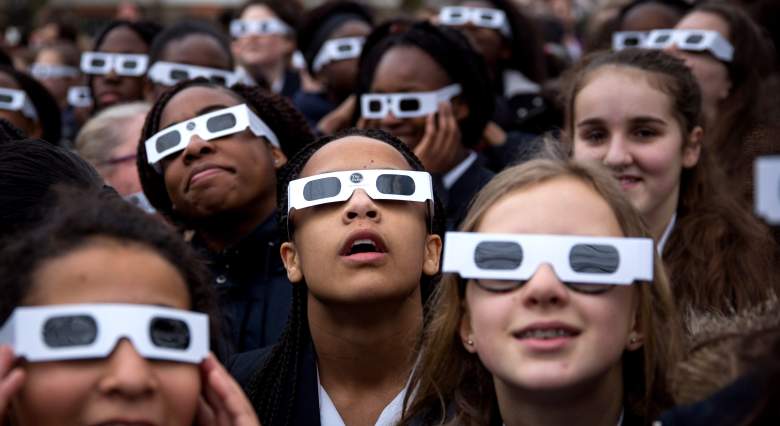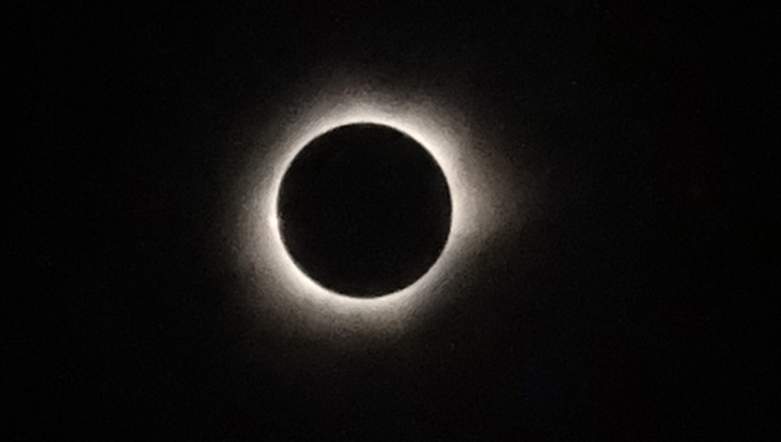
The solar eclipse of 2017 is almost upon us. That means a lot of people are rushing around at the last minute hoping to find solar eclipse glasses before the solar eclipse arrives on August 21, 2017.
This is laudable; NASA says you can incur serious eye damage if you look at the solar eclipse without solar eclipse glasses. And, no, regular sunglasses won’t work.
Many people are wondering whether you can get solar eclipse glasses at Home Depot, 7-Eleven, or Love’s Travel Stops and whether you can find them on eBay. The answer is yes in some of those cases as long as they aren’t sold out (which will be a big problem, because, in many cases, they are). You can see a detailed breakdown below. (If you decide to check Craigslist or Facebook instead – which might end up your only option – you have to be careful not to fall for a fake. You can read more about that here.)
7-Eleven and Love’s Travel Stops were great choices initially because they are on the NASA approved list of retailers selling solar eclipse glasses. You have to be careful with eBay products to make sure you don’t purchase a fake or something that can damage your eyes; check very carefully for proper certification. Home Depot is not on the American Astronomical Society’s list of retailers, which NASA directs people to check out. It’s a good idea if you do buy glasses on eBay to make sure they came from one of the AAS’ vendors.
You might luck out (some have, especially at 7-Eleven, which got a new order of thousands of the glasses in late Friday), but most retailers are now sold out of solar eclipse glasses. That leaves eBay, Craiglist, DIY projects, and you can always try libraries, universities, museums and other non-profits that have bought of solar eclipse glasses for public use and events. (If you decide to check Craigslist or eBay instead – which might end up your only option – you have to be careful not to fall for a fake. You can read more about that here.)

GettyA total solar eclipse is pictured from the city of Ternate, in Indonesia’s Maluku Islands, on March 9, 2016.
Writes NASA of the AAS list: “Refer to the American Astronomical Society (AAS) Reputable Vendors of Solar Filters & Viewers page for a list of manufacturers and authorized dealers of eclipse glasses and handheld solar viewers verified to be compliant with the ISO 12312-2 international safety standard for such products.”
The American Astronomical Society does say on its website that most of the retailers on its list are sold out. Other retailers listed on the American Astronomical Society’s list of approved retailers in addition to Love’s Travel Stops and 7-Eleven are “Bi-Mart, Casey’s General Store, Hobby Town, Kirklands, London Drugs [sold out], Lowe’s, Maverik, McDonald’s (Oregon only), Pilot/Flying J, Toys “R” Us [sold out], and Walmart.”
It’s a good idea to use an approved retailer or vendor because there have been problems with unsafe glasses flooding the market. The page also has a list of other online vendors you could try, but at this point getting the glasses shipped to you in time can be tricky. Some online vendors currently advertising overnight shipping report they are sold out of the product once you go to their websites.
There’s another alternative, though: If you can’t find what you want at a retailer, there are many suggestions for making homemade solar eclipse viewers. Just make sure that you follow all of the safety precautions carefully. The eyes are a precious commodity. If you can’t get glasses, the Society suggests trying its pinhole projection method instead. You also might be lucky enough to be able to go to a NASA viewing area to get free glasses at a local library. Some universities and schools bought glasses in bulk and are holding viewing parties. USA Today offers detailed instructions for making a solar eclipse viewing card at home. National Geographic has detailed instructions for how to make a homemade viewer.
Here’s what you need to know:
7-Eleven
7-Eleven is on the AAS list of reputable vendors selling solar eclipse glasses. Call ahead to your local store to make sure they’re not sold out, which is a distinct possibility at this point.
Some families in California lucked out and found solar eclipse glasses at their local 7-Eleven as recently as August 19, according to The Orange County Register.
7-Eleven is selling a lot of the glasses, so you might still have a chance. “They’re selling like crazy. It’s like one pair a minute,” said Gurjit Pannu, owner of 7-Eleven stores in Santa Fe Springs and Maywood, to The Orange County Register. “7-Eleven has become a place to go for this.”
The Register said that 15,000 more of the glasses were shipped to various 7-Eleven franchises late on August 18. Hurry, though!
A press release from 7-Eleven corporate reads, “Sun-worshippers not wanting to be left in the dark when the ‘Great American Eclipse’ crosses the U.S. can hit 7‑Eleven® stores for special – and safe – sunglasses to view the Aug. 21 phenomenon. Available in a two pack and single pack, the ‘Explore Scientific Sun Catcher’ solar eclipse glasses offered by 7‑Eleven are approved for viewing by the American Astronomical Society (AAS). Solar eclipse sunglasses continue to sell out of stores fast, so get yours today!”
7-Eleven noted that “The 70-mile-wide path of totality of the coast-to-coast solar eclipse will cross 2,800 miles and 14 states from Oregon to South Carolina in just 90 minutes. However, partial eclipses will be visible in the U.S. throughout most of the continental 48 states.” The last solar eclipse in the U.S. was in 1979.
eBay
There are many people selling solar eclipse glasses on eBay, but costs are rising and you have to scrupulously watch out for fakes. Check it out. They range in price from under $1 to more than $200. Some offer “pick up now.” However, according to The Washington Post, “On eBay, solar glasses — which typically cost 99 cents to $30 — are selling for as much as $24,000 a pair, plus $38 for shipping. A spokesman for the site said employees have been ‘actively monitoring’ listings for unsafe items.” Unsafe glasses can “literally cook your eyes,” The Post reports.
The key to shopping for the glasses on eBay is, as mentioned, but it’s worth repeating, is that you need to make sure the glasses are certified, safe, and not fake. There are many glasses for sale on eBay in which the seller is advertising that they are certified.
Here is how to check if solar eclipse glasses are, in fact, certified. NASA refers people to the American Astronomical Society, which has been working rigorously to help people spot uncertified fakes. The site recommends, “How do you know if your eclipse glasses or handheld solar viewers are truly safe? You need to know that they meet the ISO 12312-2 (sometimes written as ISO 12312-2:2015) international safety standard. Filters that are ISO 12312-2 compliant not only reduce visible sunlight to safe and comfortable levels but also block solar UV and IR radiation.” However, the issue is that some people copy the codes and fake it.
According to AAS, that’s why it developed the list of reputable vendors and retailers. “We’ve checked manufacturers’ ISO paperwork to make sure it’s complete and that it comes from a recognized, accredited testing facility, and we’ve personally examined manufacturers’ products. We’ve asked manufacturers to identify their authorized resellers, and we’ve asked dealers to identify the source of the products they’re selling. Only when everything checks out do we add a vendor to our listing,” the site explains. “If we don’t list a supplier, that doesn’t mean their products are unsafe — only that we have no knowledge of them or that we haven’t convinced ourselves they are safe.” (But, yes, that gets you back to the problem of so many glasses being sold out.)
There are some other clues as to whether the glasses are good, but you need to get them first to know. “How can you tell if your solar viewer is not safe? You shouldn’t be able to see anything through a safe solar filter except the Sun itself or something comparably bright, such as the Sun reflected in a mirror, a sunglint off shiny metal, the hot filament of an unfrosted incandescent light bulb, a bright halogen light bulb, a bright-white LED bulb (including the flashlight on your smartphone), a bare compact fluorescent (CFL) bulb, or an arc-welding torch. All such sources (except perhaps the welding torch) should appear quite dim through a solar viewer. If you can see shaded lamps or other common household light fixtures (not bare bulbs) of more ordinary brightness through your eclipse glasses or handheld viewer, and you’re not sure the product came from a reputable vendor, it’s no good,” AAS explains. You can read more about AAS’ certification efforts and suggestions here.
Home Depot
Although it’s not on the AAS list, USA Today reports that some Home Depots are selling solar eclipse glasses. Check with your local store to make sure they are not sold out.
Some people might be tempted to head to a chain like Home Depot for welding glasses instead. However, reports KREM2, “Most welding glasses are not strong enough to keep your eyes safe, if you are watching the eclipse with them.”
Love’s Travel Marts
The American Astronomical Society says on its website that Love’s, while an approved retailer for the glasses, is sold out of them. Sorry! (Remember the homemade option.)
What you shouldn’t do is skimp on safety. You could also try your local museum, planetarium, library, and university to see if they are holding solar eclipse viewing events.